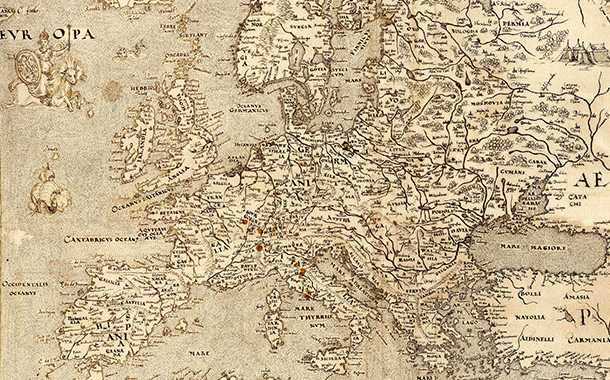<![CDATA[A new study carried out on the DNA of ancient corpses has led to a revelation in the understanding of modern day European's ancestral roots. It is generally agreed that the first Homo sapiens arrived in Europe about 45000 years ago. They were hunter-gatherers, who were then slowly replaced by the farmers who brought agricultural methods to Europe around seven thousand years ago. Recent studies have confirmed that modern day Europeans are the descendants of ancient hunter-gatherers and agriculturalists. The most startling revelation however, is the fact that a certain part of European DNA seems to have come from elsewhere. To find answers to this mystery, a group of researchers in the US and Germany sequenced the entire genetic code from nine ancient humans. Among these ancient corpses were the remains of 7000 - 8000 year old hunter-gatherers from Sweden, and a 7000 year old farmer from Germany. The DNA of these corpses was compared with the DNA taken from approximately two thousand people from all over the world, as well as from other ancient genomes. The study found that not only did almost all modern day Europeans have a mix of early European farmer DNA and Western European hunter-gatherer DNA, they also had traces of North Eurasian ancestry. This ancestry was determined from the remains of a 24000 year old child who was buried close to Lake Baikal, in eastern Siberia. The mystery finally seems to have been put to rest with these latest findings. Furthermore, the findings suggest that there were three waves of migration into Europe - one about 40000 years ago when the initial hunter-gatherers came here, one about 8000 years ago when farmers came to Europe, and a third about 5000 years ago, when the final wave of migrants entered Europe from Eurasia. As a result, modern day Europeans are a varied mix of all three migration groups. In the Baltic States, people often have 1/3rd farmer DNA mixed with 50% hunter-gatherer DNA, whereas Sardinians have more than 80% farmer DNA. On the other hand, English people have inherited about 50% of their genes from farmers, 14% from Eurasians and 36% from hunter-gatherers. A study published in the Nature Journal has also traced the DNA of modern day Scots. According to the findings of the study, Scots have 43% hunter-gatherer DNA and about 40% farmer DNA, making them quite distinct from their neighbours on the British Isles. Johannes Krause, from the University of Tubingen, states that in the absence of ancient writings, DNA evidence can go a long way in helping us understand more about ancient cultures - their lifestyles, origins, and whether they adapted their diets according to their environments. These findings highlight just how important DNA studies and genes are for archaeological projects. One cannot prove how ancient civilizations are related by studying the skeletons, but one can easily do so by studying their genes. ]]>
Ancestors of Ancient Europeans Revealed in DNA Study
